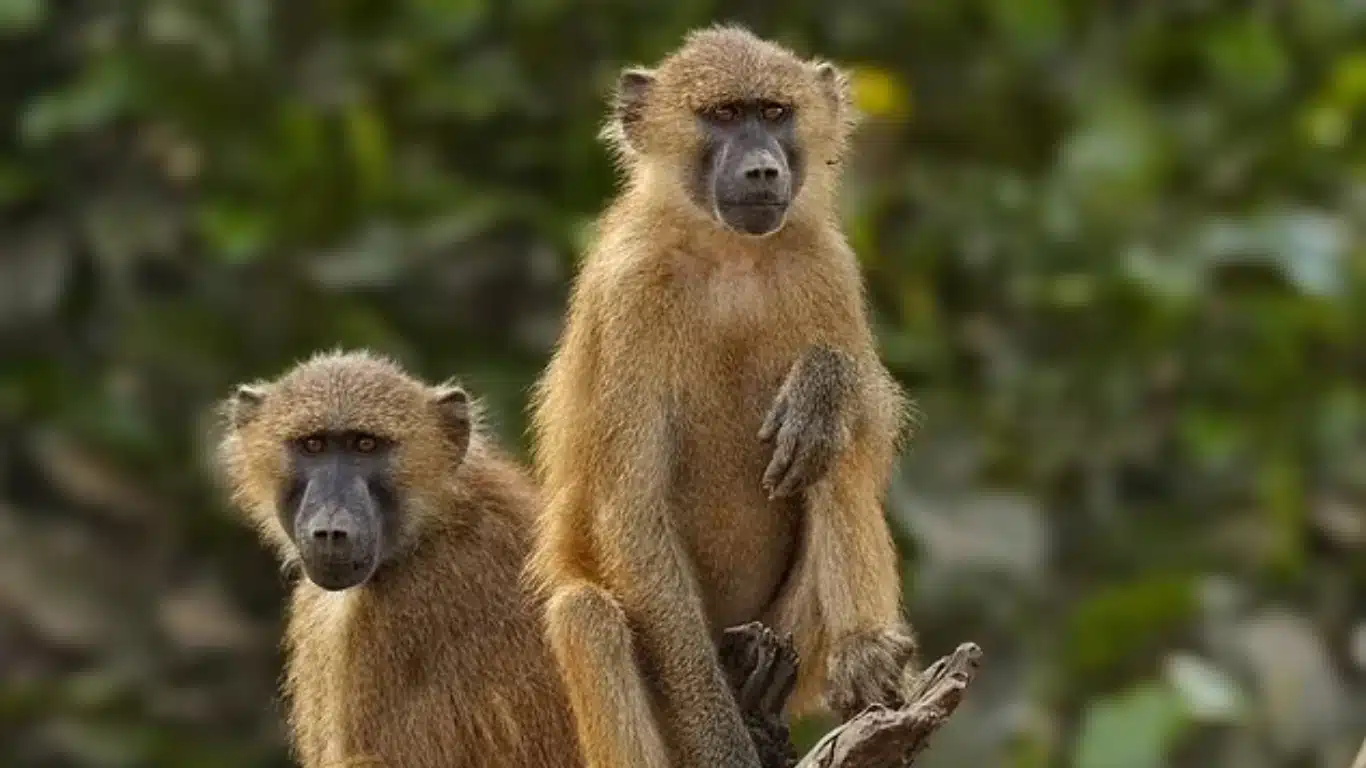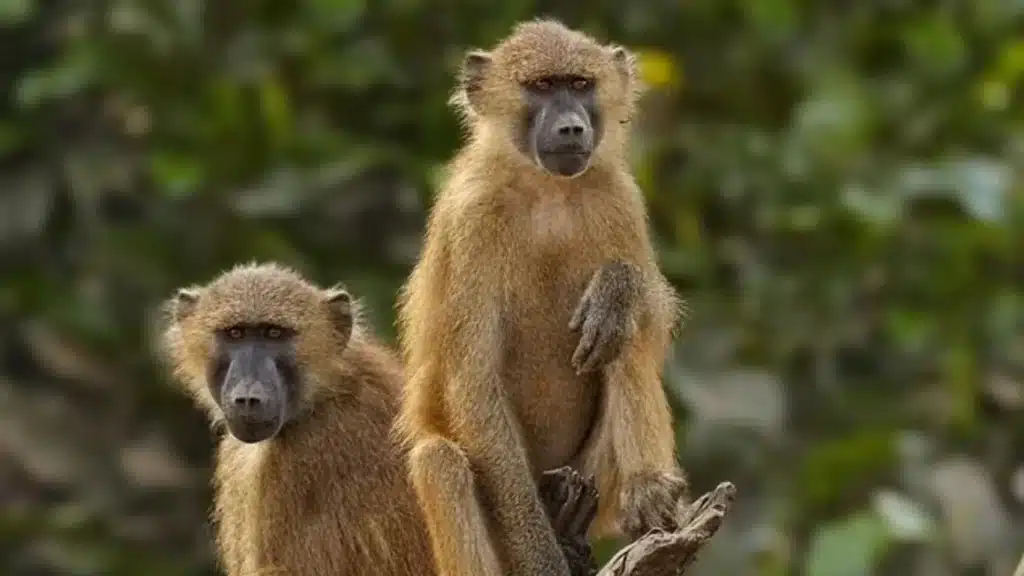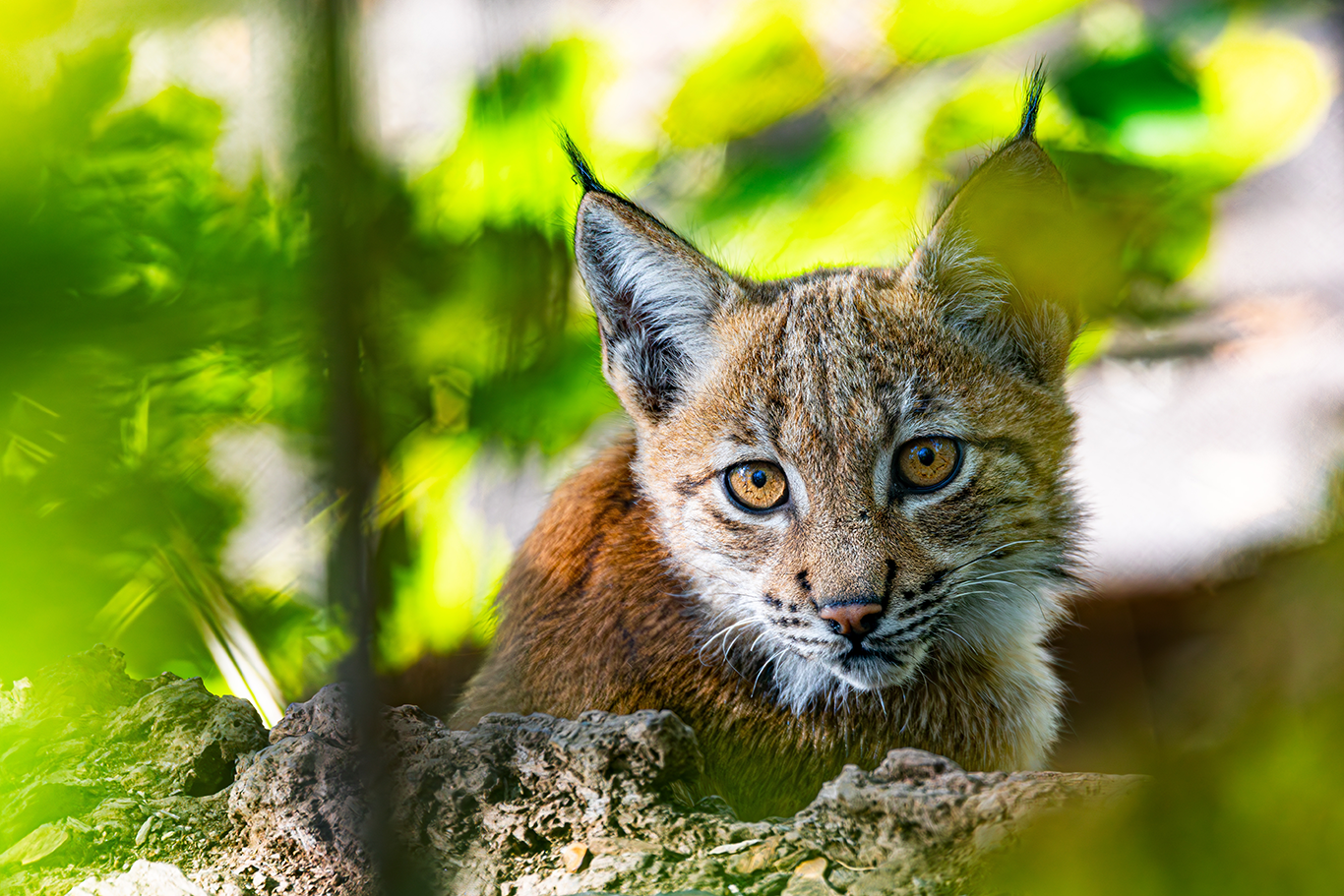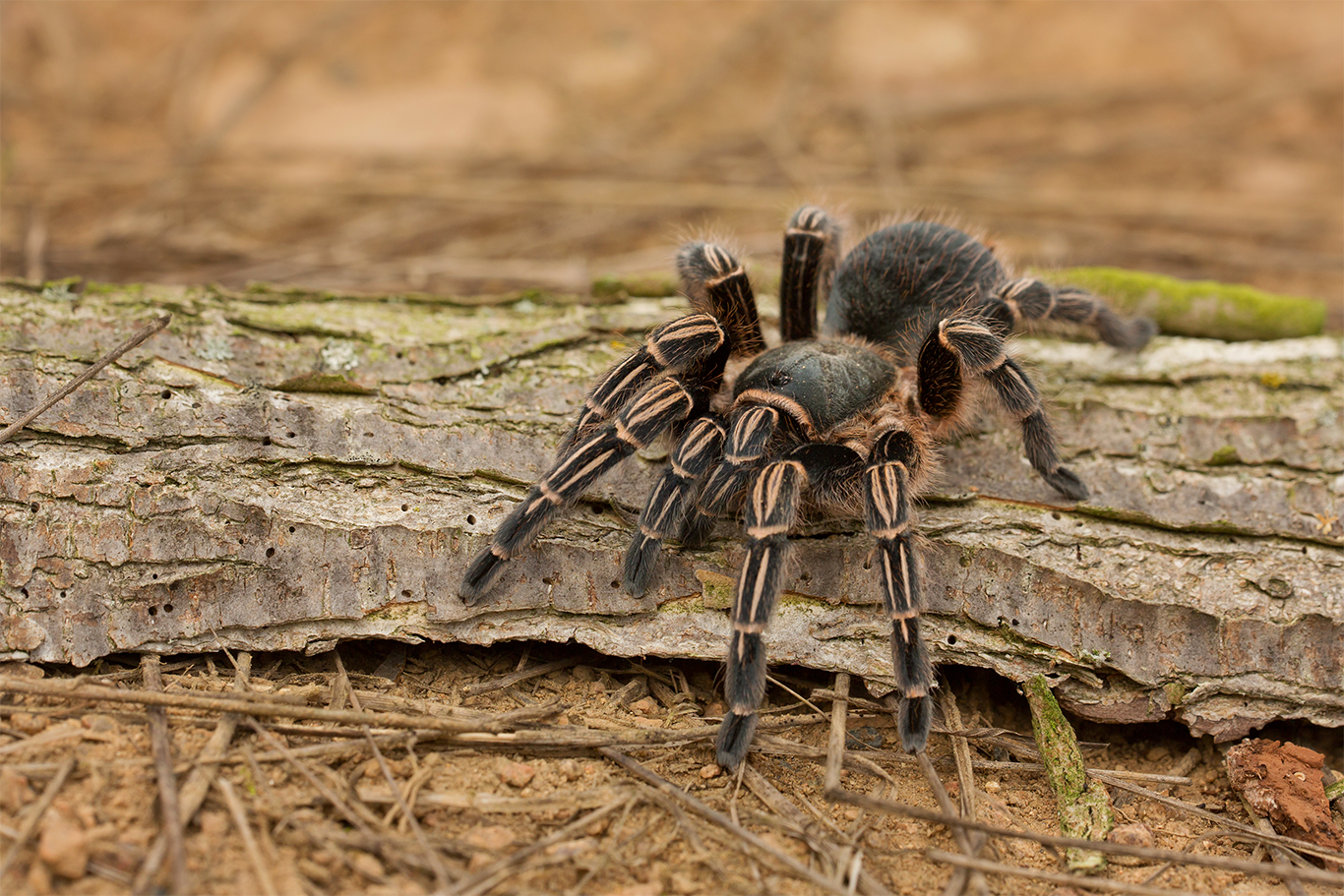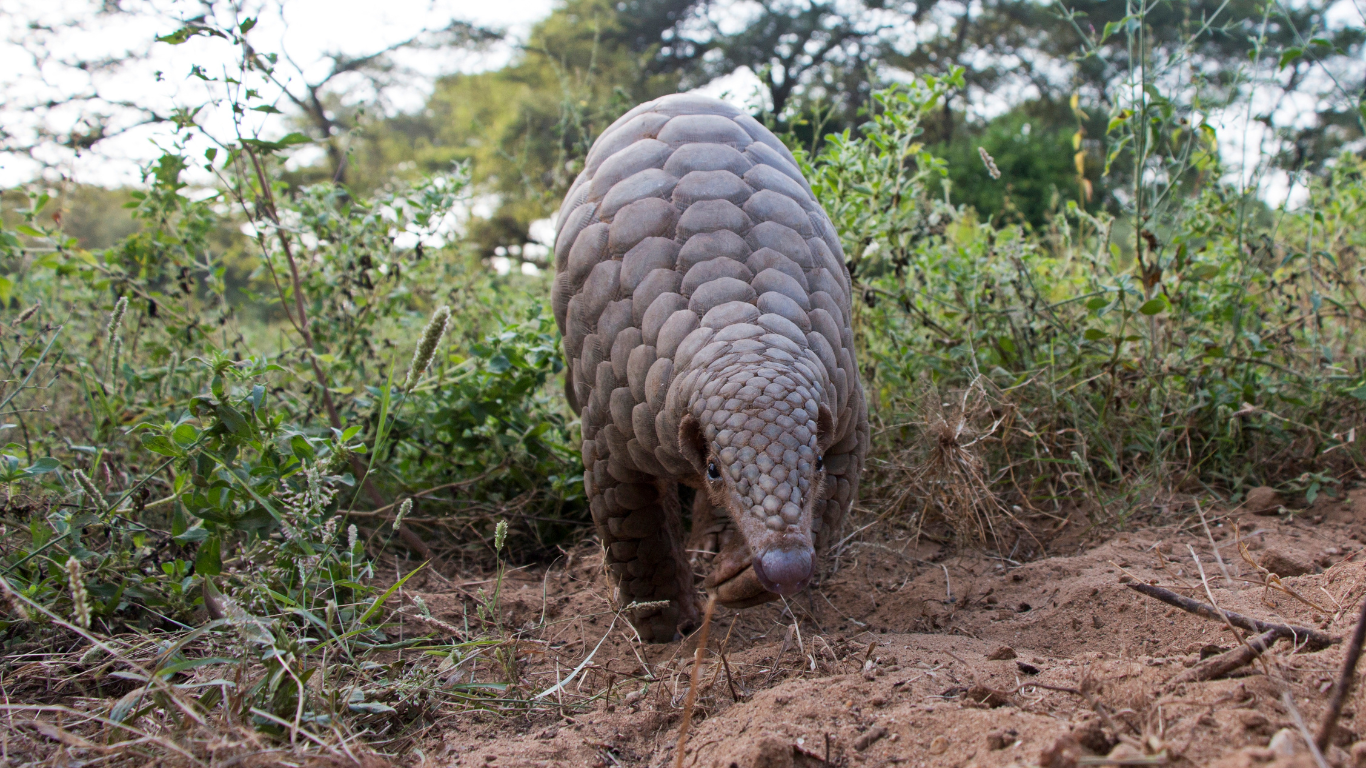Article written by Miriam Kuepper
Originally published by Mail Online (Fri, Feb 9, 2024)
Nuremberg Zoo now has 45 apes in the monkey house, but it was designed for 25.
A German zoo has sparked outrage with plans to cull some of its 45-strong tribe of baboons and feed them to captive predators after contraception failed to stop the primates from breeding.
The director of the Nuremberg Zoo, Dag Encke, announced the 'sensible' plan to kill off nearly half of the baboon population in the zoo - to allegedly 'ensure the survival' of the species.
Zookeepers even tried putting the protected Guinea baboons on contraception, but this 'didn't work' as the monkeys kept replicating and the population continued to grow, according to a statement by the zoo.
The Nuremberg Zoo now has 45 apes in the monkey house, but this was designed to hold only 25 animals.
This lack of space resulted in additional stress for the primates and more arguments between these otherwise social animals, which increasingly often end in blood.
The healthy baboons which will be killed for conservation will either be handed over to science or fed to predators in the zoo. The latter caused outrage among animal rights activist groups like PETA Germany.
The International Union for Conservation of Nature classified Guinea baboons as endangered and said they should be kept in zoos for species conservation.
The Guinea baboons live in protected areas in several West African countries, but because the population there has also surged, there is no space to relocate Nuremberg's primates to African countries either, Encke explained.
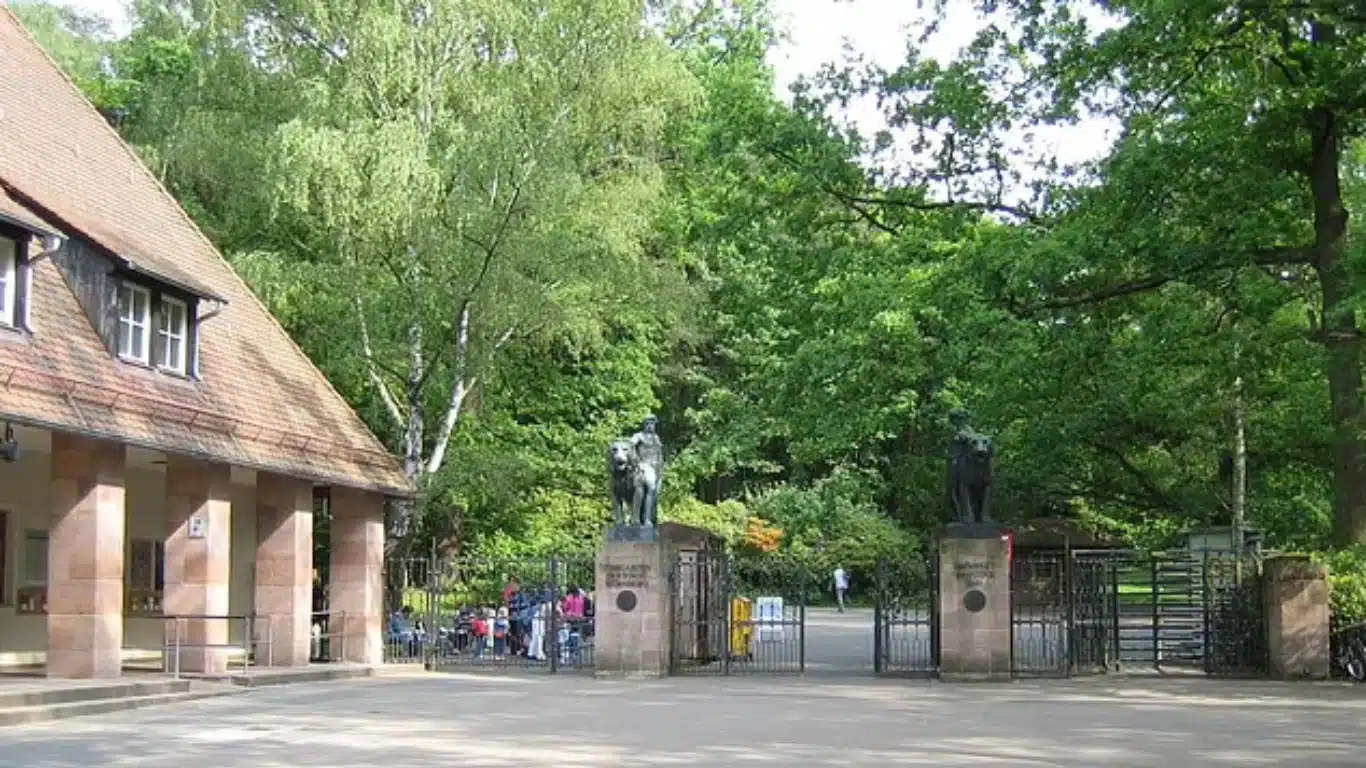
The zoo even tried to rehome the primates to a monkey sanctuary, but they already have a waiting list of more than 200 confiscated animals waiting for a new home.
'No one from the zoo thinks what is being done is good. But it is sensible,' Encke said.
The surge in the zoo's baboon population could endanger their survival, as the primates are getting too old and are having too few offspring due to the overcrowding in the monkey house, the zoo directed added.
If there were too few offspring, this would in turn destroy the social structure within the group.
'Breeding and killing animals is a vicious circle created by zoos themselves. This can only be broken if plans are drawn up to stop breeding and close zoos, instead of discussing the possible killing of animals - no matter what species it concerns,' PETA biologist Yvonne Würz said in a statement.
'Killing public favorites such as primates, lions or giraffes is considered less acceptable than killing ungulates, which are often used within zoos as food for other animals,' Würz added.
'The Nuremberg Zoo has also repeatedly killed animals in the past - including animals that belong to endangered species, for example Mendes antelopes.
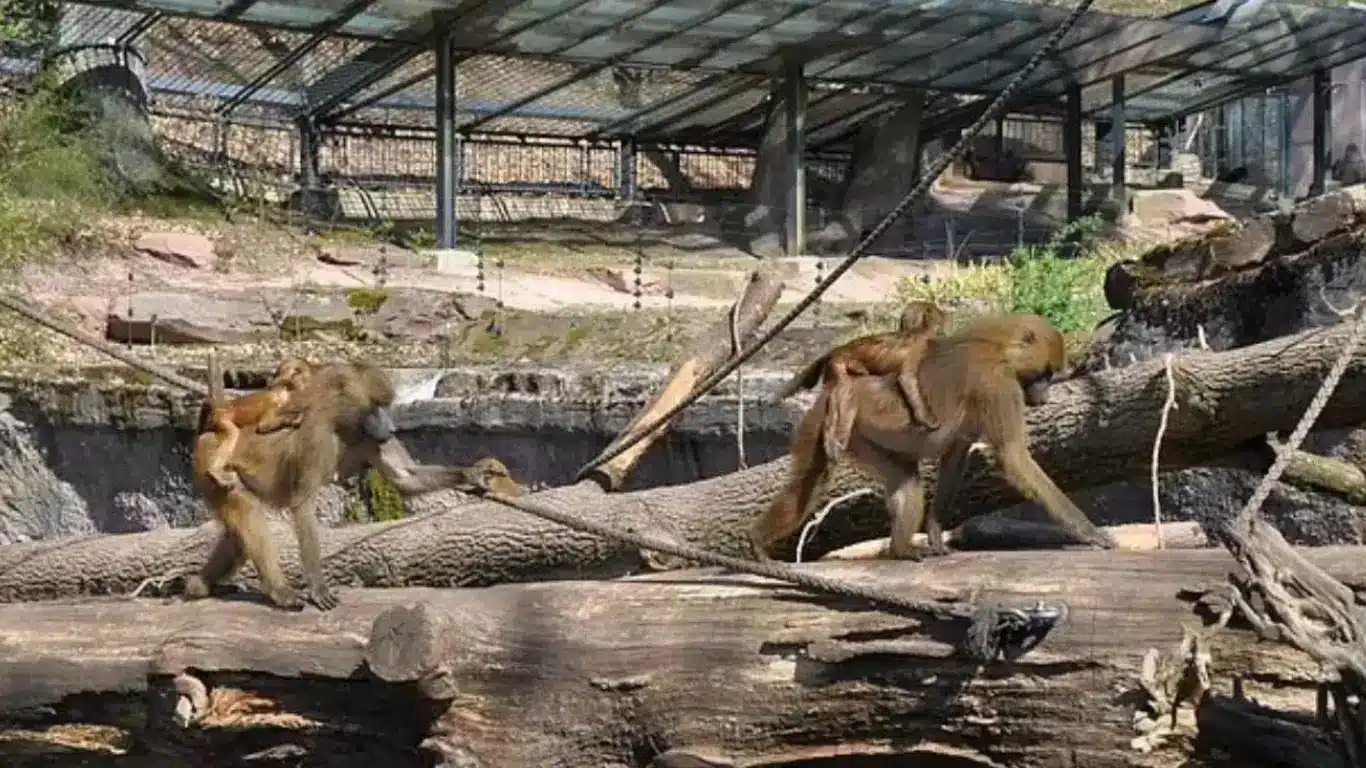
'This once again shows how much the zoo audience is being deceived by the supposed species protection argument.
'In the case of the Guinea baboons that are now to be killed, the zoo even openly admits that releasing them back into the wild is not possible or wanted.'
PETA Germany said in the statement that it would like to file criminal charges against those responsible at the Nuremberg Zoo if baboon are killed.
It would have to be carefully examined whether those killings are an exceptional case under federal laws that allow them as a 'last resort'.
The decision is 'a declaration of bankruptcy,' James Brückner from the German Animal Welfare Association told BR24.
He added that the zoo had 'cultivated' the overpopulation of the baboons for 'years' and was only now doing something about it.
But killing the primates now was 'irresponsible', and Brückner suggested that either Nuremberg Zoo or a different zoo should make room for the animals.
Banner: The director of the Nuremberg Zoo, Dag Encke, today announced the 'sensible' plan to kill off nearly half of the baboon (pictured) population in the zoo - to allegedly 'ensure the survival' of the species

